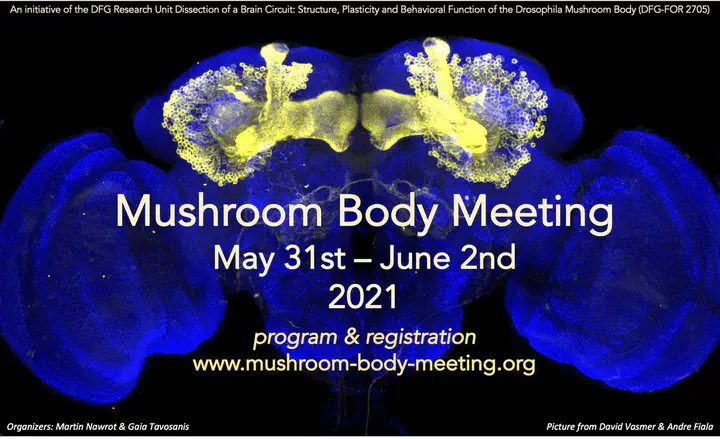How flies acquire, forget and assimilate memories: a computational perspective

Abstract
In recent years, a great volume of detailed imaging, electrophysiological and structural data about the mushroom bodies in Drosophila melanogaster has been collected. This allows us to identify a variety of sub-circuits involved in memory, which collectively drive the behaviour of the animal.
Based on the connectivity and the responses of actual neurons in the mushroom body, we identify the fruit fly incentive circuit, which links several known sub-circuits in the mushroom bodies into a comprehensive scheme by which to acquire, forget and assimilate associative memories over different timescales. By creating the same links between neurons in a computational model and using a novel learning rule, we are able to replicate the observed dynamics of 6 mushroom body output neurons (MBONs) and 6 dopaminergic extrinsic neurons (DANs) during acquisition and forgetting stages of odour-shock association. We also demonstrate how the reproduced responses could drive the behaviour of a virtual fruit fly, creating similar odour preferences to the real flies. We suggest that MBONs can be grouped into at least 3 types based on their functional properties: holding primitive, flexible or long-term memories. This allows the animal to exploit its learnt behaviour at the same time that it explores its environment, and reveals how time affects choice by naturally adapting from selecting the most safe to the most confident option by accumulating experiences.
The novel learning rule we introduce is based on how dopamine affects the Kenyon cell to MBON synaptic weights, and differs from conventional prediction error learning rules that predict blocking. Depending on conditions, this synaptic modulation causes weights to stabilise or to increase with positive feedback, and we exploit these properties to enable short-term and long-term memories, respectively, to be formed and forgotten in parallel.